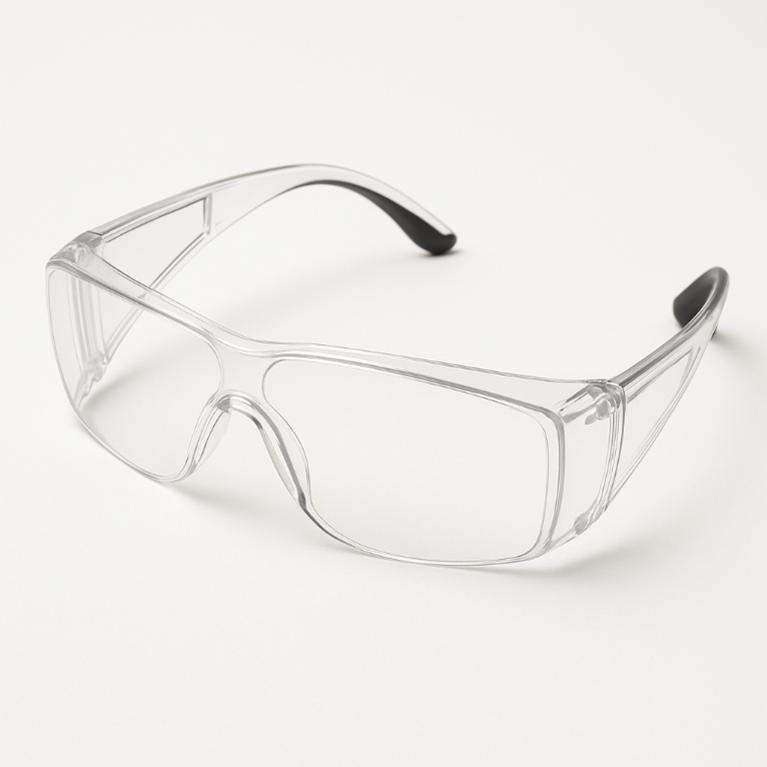When it comes to workplace safety, eye protection is non-negotiable. But if your safety glasses fog up, they’re not just annoying—they're dangerous. Foggy lenses impair your vision, increase the risk of accidents, and often lead workers to remove their eyewear altogether, which defeats the purpose.
At Novarlo, we’re all about maximizing your protection and your performance. In this guide, we’ll cover how to prevent lens fogging and break down the different types of safety eyewear—so you can choose the right protection for the job and keep it crystal clear.
Why Do Safety Glasses Fog Up?
Fogging is caused by condensation—tiny water droplets forming when warm, moist air (like your breath or sweat) hits a cooler surface (like your lenses). It’s especially common in:
- Hot or humid environments
- When wearing masks or respirators
- High-exertion tasks that increase body heat
- Cold weather job sites
5 Ways to Prevent Fogging
-
Use Anti-Fog Coated Glasses
Many modern safety glasses feature built-in anti-fog coatings. Look for models labeled ANSI Z87.1 with anti-fog treatment -
Apply Anti-Fog Wipes or Spray
Keep single-use wipes or anti-fog spray in your gear bag. It’s a quick fix, especially for older lenses without coating. -
Improve Ventilation
Choose glasses or goggles with indirect venting to allow airflow while keeping particles out. -
Fit Matters
Poor-fitting eyewear traps heat. Choose frames with adjustable nose bridges or foam gaskets for a better seal and less fog. -
Pair with a Proper Mask
If wearing a mask, ensure it fits tightly across the nose to avoid breath escaping upward.
What Types of Safety Glasses Are There?
Eye protection isn’t one-size-fits-all. The best option depends on your environment, hazards, and comfort needs. Here's a breakdown with recommended products:
1. Standard Safety Glasses
Lightweight | Comfortable | Great for general jobsite use
Recommended:
- Safety Glasses - Majestic Crosswind (PK 12 Glasses) Safety Glasses - Majestic Crosswind (PK 12 Glasses)
- HexArmor MX300 Safety Glasses – Clear, Anti-Fog HexArmor - Safety Glasses - MX300 TruShield® (1 Pair)
2. Over-the-Glasses (OTG) Safety Glasses
Fits over prescription eyewear | Side protection | Comfortable for long shifts
Recommended:
- Over-The-Glass (OTG) Safety Glasses - Majestic Sentry (PK 12 Glasses) Over-The-Glass (OTG) Safety Glasses - Majestic Sentry (PK 12 Glasses)
- HexArmor - Safety Glasses - LT250 TruShield® HexArmor - Safety Glasses - LT250 TruShield® (1 Pair)
3. Goggles
Full seal around eyes | Anti-fog options | Vented for breathability
Recommended:
- Safety Goggles - Clear, Ventless Anti-Fog Safety Goggles - Clear, Ventless Anti-Fog (1 Dozen)
- Safety Goggles - Clear, Vented/Perforated Safety Goggles - Clear, Vented/Perforated (1 Dozen)
4. Face Shields
Full face coverage | Impact + splash protection | Works with goggles or glasses
Recommended:
- HexArmor - Face Sheild Kits- Ceros® XP HexArmor - Face Sheild Kits- Ceros® XP
- 12 Cal Hover XTR Series Arc Flash Face Shield Kits – Enespro 12 Cal Hover XTR Series Arc Flash Face Shield Kits - Enespro
5. Safety Glasses with Side Shields
Protects peripheral vision | Ideal for grinding, machining, woodworking
Recommended:
- Defiant Safety Glasses with Adjustable Temples (1 Dozen) Defiant Safety Glasses with Adjustable Temples (1 Dozen)
- HexArmor - Safety Glasses - LT250 TruShield® HexArmor - Safety Glasses - LT250 TruShield® (1 Pair)
Tips
- Replace scratched or worn lenses, which fog more easily
- Clean lenses daily to avoid buildup of oils and dust
- Choose ANSI-rated eyewear to meet workplace compliance
OSHA Eye Protection Guidelines
The Occupational Safety and Health Administration (OSHA) mandates that employers provide appropriate eye and face protection where there is a risk of injury from flying particles, molten metal, chemicals, or harmful light. Per 29 CFR 1910.133 – Eye and Face Protection 1910.133 - Eye and face protection. | Occupational Safety and Health Administration, safety glasses and face shields must be ANSI Z87.1-compliant and suitable for the specific hazards of the job site.
Stay Clear, Stay Safe
Fogged lenses shouldn’t force you to choose between safety and visibility. With the right eyewear and a few smart habits, you can keep your vision sharp and your eyes protected no matter the conditions.
